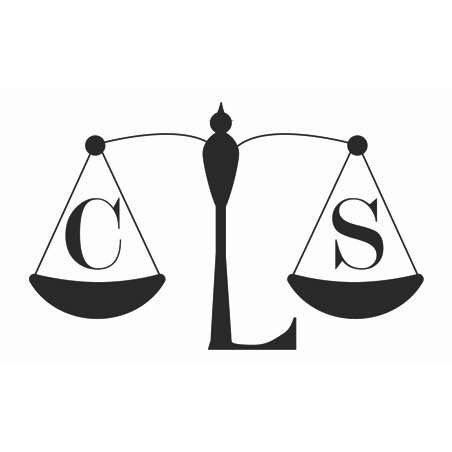Best Energy Regulatory Law Lawyers in Sanaa
Share your needs with us, get contacted by law firms.
Free. Takes 2 min.
List of the best lawyers in Sanaa, Yemen
About Energy Regulatory Law in Sanaa, Yemen
Energy Regulatory Law in Sanaa, Yemen refers to the body of legal rules and government policies that oversee the production, distribution, and consumption of energy resources. This includes both conventional sources like oil, gas, and coal, as well as renewable energy options such as solar and wind. The main focus of this legal field is to ensure the efficient and fair regulation of energy markets, protect consumers, and encourage sustainable energy practices. In Sanaa, both national and local regulations are involved, and these can be influenced by changing economic, political, and environmental conditions in Yemen.
Why You May Need a Lawyer
Situations involving energy in Yemen can be complex due to layers of local, national, and sometimes international law. Some common scenarios where legal help is needed include:
- Negotiating contracts for the purchase, sale, or distribution of electricity or fuel
- Resolving disputes between energy providers and consumers
- Licensing and compliance issues related to power generation or distribution
- Involvement in public or private projects that require environmental approvals or permits
- Advising businesses on changes to government energy policies or regulations
- Defending against fines or enforcement actions by regulatory authorities
- Challenging unauthorized or informal energy connections
Local Laws Overview
Energy regulation in Sanaa, Yemen is guided by a collection of laws, decrees, and policies from national ministries and local government bodies. Key elements include:
- Licensing Requirements: Operating any energy-related business usually requires proper authorization from the Ministry of Electricity and Energy.
- Consumer Protection: Laws are in place to prevent price gouging, ensure honesty in billing, and guarantee service standards.
- Environmental Standards: Regulations address emissions, safety, and land use, especially in relation to power generation facilities.
- Tariff Structures: The government frequently reviews and updates energy pricing. There may be special rules for subsidies or price controls due to economic challenges.
- Dispute Resolution: Administrative bodies exist to handle some disputes, but many issues may require court intervention.
- Off-Grid and Renewable Energy: The rise in independent solar power systems has led to emerging rules around installation, safety, and connection to the main grid.
It is essential to note that ongoing conflict and instability in Yemen can lead to rapid changes in how energy laws are enforced or interpreted.
Frequently Asked Questions
What is energy regulatory law?
Energy regulatory law covers the legal rules that regulate the production, distribution, sale, and use of energy resources. It ensures that energy is provided safely, fairly, and within environmental standards.
Who enforces energy laws in Sanaa?
The Ministry of Electricity and Energy is the main government body responsible for enforcing energy laws. Local municipal authorities may also have a role, especially for smaller-scale or off-grid energy systems.
Do I need a license to start an energy business in Sanaa?
Yes, operating any business that generates, distributes, or sells electricity or fuel requires obtaining appropriate licenses from the relevant governing bodies.
What are the penalties for violating energy regulations?
Penalties can include fines, suspension of business operations, confiscation of equipment, or in severe cases, criminal charges.
How are electricity prices set?
Electricity tariffs are usually set by the government and may be subject to periodic review based on economic conditions, fuel prices, and government subsidies.
Can I install my own solar panels?
Yes, private installation of solar panels is allowed but may require permission from local authorities or adherence to safety and grid-connection standards.
What should I do if I have a dispute with an energy provider?
Start by contacting the provider directly. If the issue is not resolved, you may file a complaint with the Ministry of Electricity and Energy or seek advice from a qualified lawyer.
Are there laws about energy rationing or outages?
While there are general regulations, ongoing power shortages may result in local or emergency decrees regarding rationing. These can change quickly, so it is important to stay informed.
How are environmental concerns handled?
There are environmental standards for energy projects, and significant developments may require environmental impact assessments and government approval.
Is foreign investment allowed in Yemen's energy sector?
Foreign investment can be permitted but is subject to strict government review and additional security and regulatory requirements.
Additional Resources
For more in-depth information or assistance regarding Energy Regulatory Law in Sanaa, consider reaching out to:
- Ministry of Electricity and Energy (Sanaa office)
- Sanaa Municipality Department of Utilities
- Yemen's General Authority for Environmental Protection
- Local chambers of commerce legal departments
- Bar Association in Sanaa for referrals to specialized legal counsel
- Reputable non-governmental organizations working in energy development and reform
Next Steps
If you need legal advice or assistance with Energy Regulatory Law in Sanaa, Yemen, start by collecting all relevant documents related to your situation, such as contracts, bills, or governmental correspondence. Clearly outline your questions and concerns. Next, contact a qualified local lawyer with experience in energy regulation, or reach out to one of the governmental bodies listed above. It is important to seek professional legal advice before making any major decisions or commitments. Acting early can help you avoid costly mistakes, ensure compliance, and protect your rights and interests in Yemen's ever-changing energy landscape.
Lawzana helps you find the best lawyers and law firms in Sanaa through a curated and pre-screened list of qualified legal professionals. Our platform offers rankings and detailed profiles of attorneys and law firms, allowing you to compare based on practice areas, including Energy Regulatory Law, experience, and client feedback.
Each profile includes a description of the firm's areas of practice, client reviews, team members and partners, year of establishment, spoken languages, office locations, contact information, social media presence, and any published articles or resources. Most firms on our platform speak English and are experienced in both local and international legal matters.
Get a quote from top-rated law firms in Sanaa, Yemen — quickly, securely, and without unnecessary hassle.
Disclaimer:
The information provided on this page is for general informational purposes only and does not constitute legal advice. While we strive to ensure the accuracy and relevance of the content, legal information may change over time, and interpretations of the law can vary. You should always consult with a qualified legal professional for advice specific to your situation.
We disclaim all liability for actions taken or not taken based on the content of this page. If you believe any information is incorrect or outdated, please contact us, and we will review and update it where appropriate.









